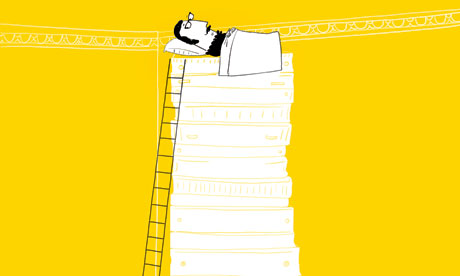
If, like me, you've recently purchased a mattress, you'll know it's an astoundingly tedious and soul-depleting process – rendered only slightly less awful by the fact that when you do finally collapse, exhausted by indecision, in the middle of the beds department, there are plenty of places to lie down. Long ago, maybe mattress-shopping was a simple choice between "firm" and "soft", but these days it's a thicket of dilemmas. Memory foam, wool, gel, fibre? Solid-slatted or sprung-slatted? Lumbar zoning? Perhaps a pillow-top? This complexity at first seems hard to explain. Sure, it's nice to have options, but why deliberately aggravate customers, delaying the moment of purchase with so many extra decisions? Aren't mattress-makers aware of one of the best-known truths of consumer psychology: that too much choice makes people miserable?
Oh, don't worry: they're aware. But they've got a different plan: by inventing so many different criteria, they make it effectively impossible to comparison-shop. Even if those criteria were identical from one manufacturer to the next – which they're not – you'd go crazy keeping track of every one. And so the industry, as a whole, gets to charge inflated prices; consumers have no way to tell what's good value. Airlines do this increasingly, too, with "unbundled" fares, charging separately for luggage, on-board food, etc. People get cross when Ryanair adds sneaky fees – as when, earlier this year, they charged one woman €300 for printing boarding passes – and consumer watchdogs demand "transparency". But sneakiness is only part of the problem. Even when charges are out in the open, their proliferation make flights comparison-proof. The only (partial) remedy is to pick your own criteria, before you begin, and stick to them. Buying a TV? If you care only about picture and sound quality, ignore every other feature you're offered. And with mattresses, as Slate magazine once concluded in a review of the industry , "just buy the cheapest thing you can stand and be done with it, because they're pretty much all the same".
It's not all bad news, though: the same idea of "comparison-proofing" has more cheering implications when it comes to personal wellbeing. Happiness is a deeply comparison-based notion, and our need to feel that we're doing well compared to others leads us into traps: this explains the famous finding that many people would choose a smaller rise in income, leaving them wealthier than those around them, over a larger one, with others receiving even more.
Might it not make sense, then, to comparison-proof your own life? This is one good argument for pursuing a long-held eccentric career ambition over something more conventional: if nobody else you know is a gherkin wholesaler, or a goat farmer, you're much less likely to feel gnawed by the sense of not measuring up. It might pay to pick friends with different lifestyles, too. When I hear about successes of friends who are writers, I admit, my happiness is tinged with envy. ("Every time a friend succeeds, I die a little" – Gore Vidal.) But my friend the actor, or my friend the computer programmer? For them, I'm just happy: there's no easy way to compare our achievements, so it never occurs to me to do so. Though there is one way, of course, in which anyone can compare themselves to others. Which is why friends who want to stay friends should never discuss money.
oliver.burkeman@theguardian.com
Follow Oliver Burkeman on Twitter

